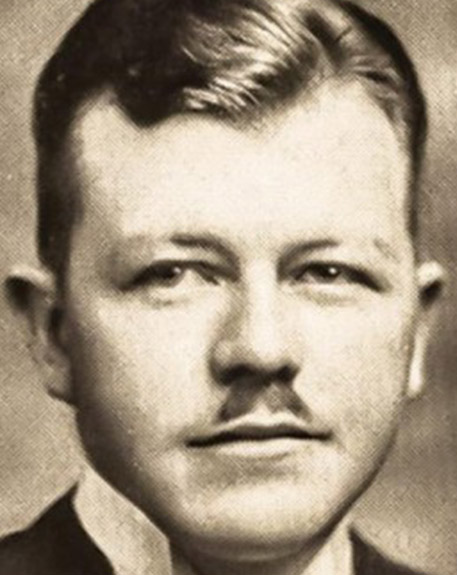2015 INDUCTEE John McCrae, MD Patient Care, The Early Days - Health Care Pioneers
November 30, 1872
(Guelph, Ontario)
January 28, 1918
MD, University of Toronto (1898)
1901: The Queen’s South Africa Medal
1915: Star, British War Medal, Victory Medal
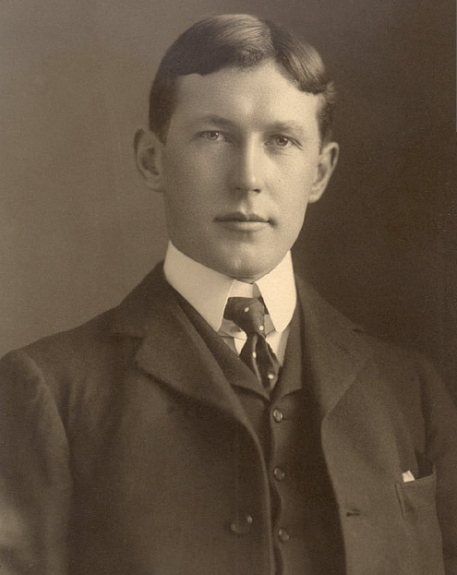
Advanced understanding of tuberculosis, scarlet fever, nephritis, and lobar pneumonia
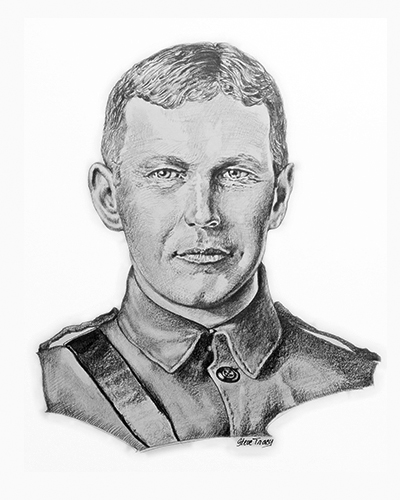
One of the best trained physicians of his generation
Born in Guelph, Ontario, John McCrae won a scholarship to study at the University of Toronto when he was 16. He completed his residency at the Toronto General Hospital and worked for a short period at Johns Hopkins University with Dr. William Osler. Later, Dr. McCrae completed specialist training in pathology under Dr. George Adami. He was one of the first Canadians to receive formal training in laboratory research, and invented new processes to aid his study of agglutination of several bacteria.
In the First World War, Lt. Col McCrae served as the chief medical officer of the No. 3 Canadian General Hospital (McGill). He was an inspirational leader who worked to exhaustion in this role for two and half years, tragically succumbing to pneumonia in January 1918.
Key Facts
While conducting his private medical practice, he authored 30 papers with research that includes almost 1,000 autopsies
Co-authored the influential textbook of pathology for students of medicine with Dr. George Adami
Throughout his life, McCrae wrote poetry and stories that were published in Canadian magazines and journals.
Was the first Canadian to be chosen as consulting physician to the British Army
Professional timeline
Impact on lives today
When Dr. McCrae attended patients at the Second Battle of Ypres in 1915, he faced casualties on a scale that is unimaginable today. Through his medical expertise and perseverance in the face of the horrors of war, he helped save many lives. Through his poetry, he ensured that future generations would never forget the sacrifice of those who did not make it home.
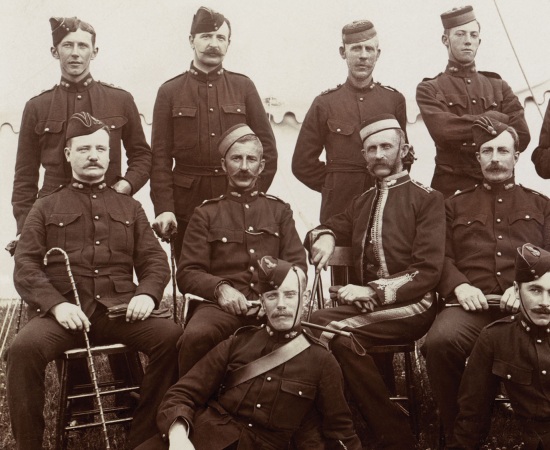
2015
-
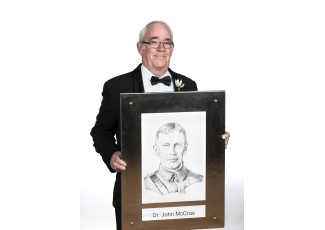
John McCrae posthumously inducted into the Canadian Medical Hall of Fame
Winnipeg, Manitoba
-
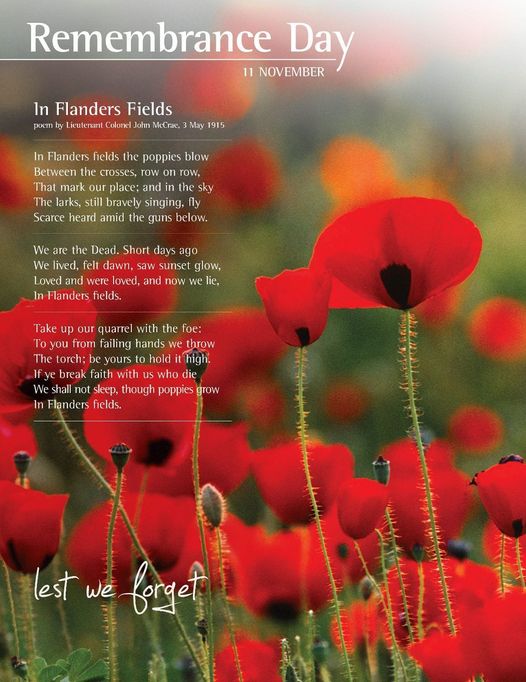
Lest We Forget
“In Flanders Fields” was carved into the Memorial Chamber in the newly opened Peace Tower on Parliament Hill, Ottawa.
-
As a testament to his leadership and skills, Dr. McCrae became the first Canadian to be appointed Consultant Physician to the British armies in the field.
Leadership in Organizational Development -
Dr. John McCrae wrote “In Flanders Fields”, following the death of Lt. Alexis Helmer from Ottawa
Health & HumanitiesThe poem was published in Punch Magazine in December and was soon known around the world.
-
Outbreak of War
Leadership in Organizational Development, Patient CareAt the outset of the First World War, Dr. McCrae was one of the earliest Canadians to enlist in the war effort. He served as a medical officer and was later promoted to the rank of lieutenant-colonel.
-
When Governor General Earl Grey established an exploration expedition from Norway House in Manitoba to Hudson’s Bay, Dr. McCrae served as the expedition’s physician.
Patient Care -
After the South African War, Dr. McCrae returned to Canada to study pathology.
He then stayed in Montreal to practice medicine. He became a pathologist for the Royal Victoria Hospital and the Montreal Hospital while also finding time to lecture at McGill University.
-
Spirit of Service
Dr. McCrae accepted a pathology fellowship at McGill University, but postponed this opportunity to join the second contingent of Canadian soldiers in the South African War.
-
While completing medical school, Dr. McCrae continued to nurture his love of writing. In 1894, he won a Saturday Night short story competition.
1894
He was warm and compassionate with very high principles.


